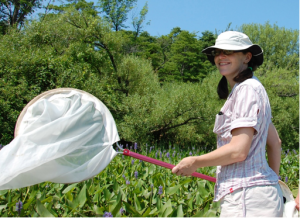Dr. Minckley is hosting Dr. Shannon Hedtke, Research Associate in the Department of Entomology at Cornell University. She is presenting a talk titled, “The pleasures and pitfalls of bee phylogenetics.” Per her web site, she says about herself and her research: “I study the evolution of complex traits in invertebrates. My developing research program focuses on the ecology and evolution of immune system defense in wild bees and their pathogens. I am using molecular laboratory techniques and bioinformatic research to identify and characterize pathogens, examine their evolution across landscapes, and to evaluate genome evolution in their bee hosts.”
She goes on further to say, “Bees are extremely important pollinators in natural and agricultural settings. Most people know about the importance of the European honey bee in pollination, but there are thousands of bee species that vary considerably in their life history. For example, some bees are solitary rather than living in colonies, some specialize on particular flowers, some nest in the ground while others in wood. Evolutionary changes in these life history traits can affect speciation rates, genome evolution, and evolution of other traits. Because similar traits have independently evolved multiple times within bees, I can use phylogenies to examine patterns of selection, speciation, and genome evolution. In particular, I am interested in immune responses in wild bees to novel and evolving pathogens, and how these responses are affected by agrichemicals. This work is relevant to evaluating the robustness of wild bee communities to our changing environment.”

